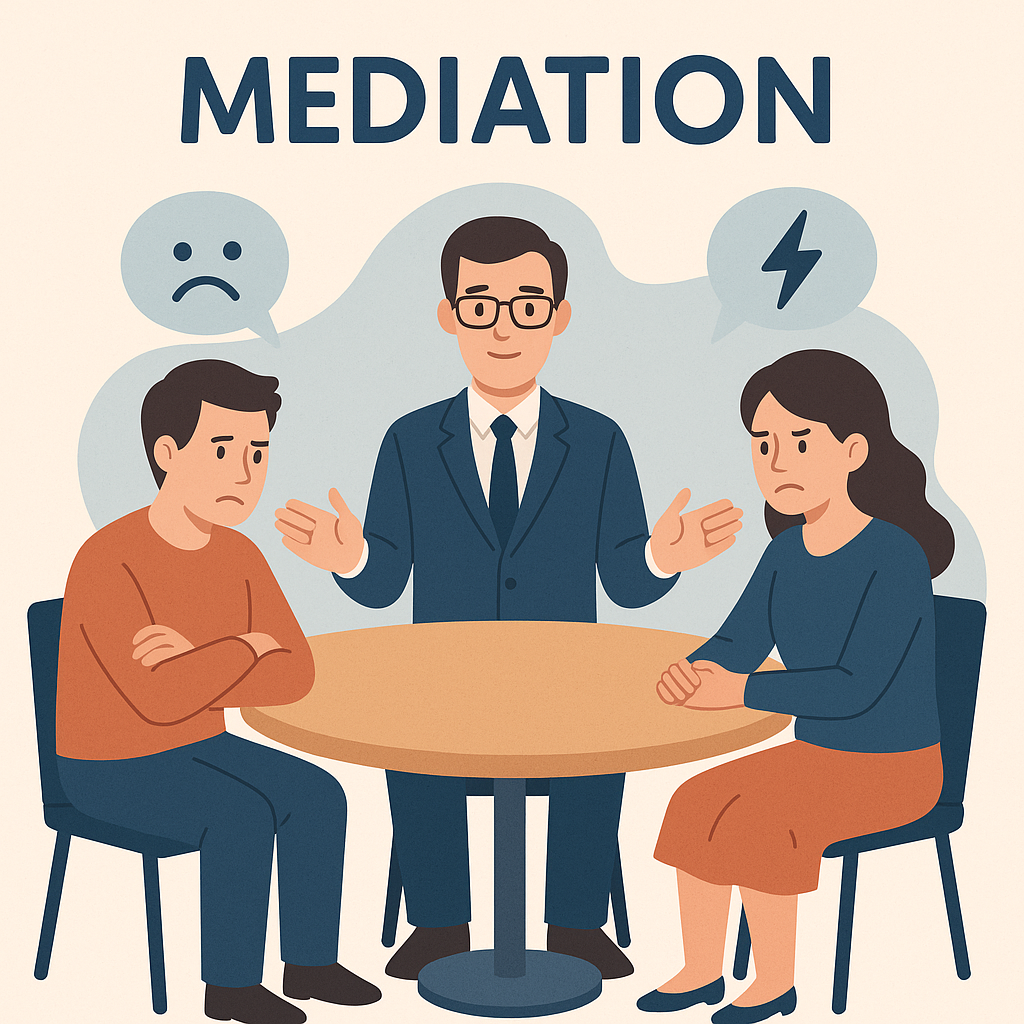
I Don’t Often Talk About Mediation in Family Cases, because I am a civil mediator But…
Mediation is often overshadowed by the more dramatic aspects of family law—courtroom battles, urgent applications, and high-stakes decisions. Yet, a recent High Court judgment in G v B [2025] EWHC 1222 (Fam) has brought mediation back into focus, highlighting its potential even in complex international disputes.
The Case of
G v B
A Cross-Border Family Dispute
In G v B, the father sought a summary return of his three young children to Dubai, invoking the court’s inherent jurisdiction. The mother opposed, citing allegations of domestic abuse and concerns about her mental health. The court ultimately refused the father’s application, emphasizing the children’s welfare and the mother’s support network in England. Notably, the judgment acknowledged the father’s willingness to engage in mediation to resolve future arrangements.
Mediation: A Viable Alternative
This case underscores the role mediation can play in resolving family disputes, even those with international dimensions. Mediation offers a confidential, less adversarial forum where parties can discuss and agree on arrangements concerning children, finances, and other matters. It can be particularly beneficial when both parties are open to dialogue and compromise.
Government Initiatives and Legal Framework
Recognizing the benefits of mediation, the UK government has proposed reforms to make mediation mandatory in all suitable low-level family court cases, excluding those involving domestic abuse. The Family Mediation Voucher Scheme, providing up to £500 to help families resolve disputes through mediation, has been extended until April 2025.
Additionally, changes to the Family Procedure Rules effective from April 2024 have expanded the definition of non-court dispute resolution (NCDR) to include various forms of mediation and collaborative law. Courts now have greater authority to encourage parties to engage in NCDR, with potential cost implications for non-engagement.
Confidentiality and Safeguards
Mediation is conducted on a “without prejudice” basis, meaning discussions cannot be disclosed in court proceedings. However, mediators have a duty to report any allegations of harm, especially concerning children, to appropriate authorities. This balance ensures that while parties can speak freely, safeguards are in place to protect vulnerable individuals.
Conclusion
The G v B case serves as a reminder that mediation can be a powerful tool in family law, offering a path to resolution that prioritizes the welfare of all involved. While not suitable for every situation, especially where there are serious allegations of abuse, mediation provides an avenue for parties to collaboratively address their disputes, potentially leading to more amicable and sustainable outcomes.
If you’re navigating a family dispute, consider whether mediation might be a suitable option. Engaging with a qualified mediator can provide clarity and facilitate agreements that serve the best interests of all parties, particularly children.
